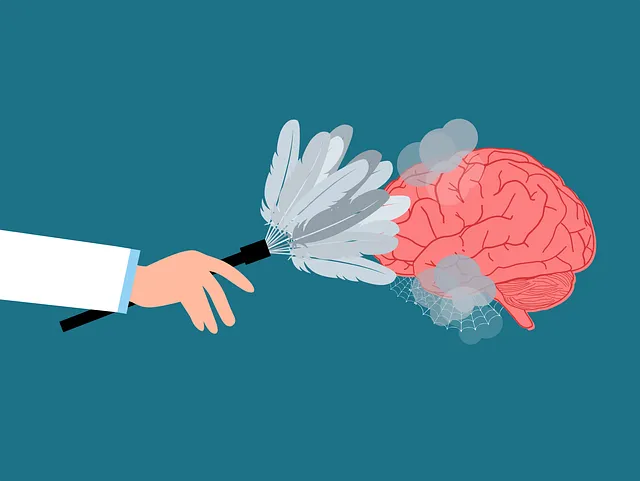The Kaiser Permanente behavioral health center in Lafayette provides valuable mental wellness self-assessment tools tailored to address various concerns from anxiety to burnout, especially among healthcare providers at high risk. These tools, emphasizing accessibility and non-stigmatization, help monitor emotional well-being and guide personalized strategies for improved resilience. Essential for early intervention and strategic planning, their widespread use contributes to better mental health outcomes in diverse communities, revolutionizing care beyond urban centers.
Mental wellness self-assessment tools play a crucial role in empowering individuals to take charge of their mental health. In this article, we explore the development and impact of such tools, with a specific focus on the innovative work done by the Kaiser Permanente Behavioral Health Center in Lafayette. We’ll delve into key considerations for effective assessment, highlighting how these tools enhance mental health support and foster better overall well-being. Discover how organizations like KP are revolutionizing mental healthcare access.
- Understanding Mental Wellness Self-Assessment Tools
- The Role of Kaiser Permanente Behavioral Health Center Lafayette
- Developing Effective Assessment Tools: Key Considerations
- Implementation and Impact: Enhancing Mental Health Support
Understanding Mental Wellness Self-Assessment Tools

Mental wellness self-assessment tools are designed to help individuals gain insights into their mental health status and identify potential areas of concern. These tools play a crucial role in early intervention, especially in high-risk populations like healthcare providers. For instance, the Kaiser Permanente behavioral health center in Lafayette offers such assessments as part of its comprehensive approach to burnout prevention strategies for healthcare providers, who are often at risk of developing mental health issues due to their demanding professions.
By utilizing these self-assessment tools, individuals can proactively monitor their mental well-being. This process involves evaluating various aspects of one’s psychological state, including emotional regulation, stress management, and overall life satisfaction. A thorough mental wellness assessment can serve as a foundation for developing personalized strategies to foster positive thinking and enhance resilience, ultimately contributing to improved mental health outcomes, particularly within communities that face unique challenges like the healthcare sector.
The Role of Kaiser Permanente Behavioral Health Center Lafayette

The Kaiser Permanente Behavioral Health Center Lafayette plays a pivotal role in fostering mental wellness within the community. This healthcare facility is dedicated to providing comprehensive behavioral health services, focusing on various aspects of emotional well-being promotion techniques. Through its expert team of professionals, the center offers a range of programs aimed at addressing common mental health challenges, including anxiety relief and strategies for cultivating positive thinking.
By integrating innovative approaches and evidence-based practices, the Kaiser Permanente center contributes significantly to the overall mental wellness of individuals seeking support. Their specialized services cater to diverse populations, ensuring that people from all walks of life have access to effective tools and resources for managing their psychological well-being.
Developing Effective Assessment Tools: Key Considerations

Developing effective mental wellness self-assessment tools is a multifaceted process that requires careful consideration from professionals like those at the Kaiser Permanente behavioral health center Lafayette. Firstly, the tool must be tailored to assess a wide range of mental health concerns, from anxiety and stress management to more complex conditions such as depression. This involves comprehensive research into various assessment methodologies, integrating evidence-based practices like Depression Prevention and Emotional Healing Processes. The language and format should be accessible, clear, and non-stigmatizing to encourage honest self-reflection.
Additionally, incorporating compassion cultivation practices into the assessment can foster a supportive environment, promoting emotional well-being during what might otherwise be a challenging experience. The tool’s design must balance accuracy with sensitivity, ensuring that it provides actionable insights without causing further distress. Regular updates and validity checks are essential to keep pace with advancements in mental health research and best practices, ensuring the tool remains relevant and effective for diverse populations.
Implementation and Impact: Enhancing Mental Health Support

The development of self-assessment tools for mental wellness plays a pivotal role in enhancing access to care, especially in areas where specialized services are limited, such as communities beyond urban centers. Organizations like Kaiser Permanente behavioral health center Lafayette have recognized this need and taken initiative to streamline mental health support. By integrating user-friendly assessment platforms, individuals can discreetly evaluate their well-being, promoting early intervention and personalized care.
This approach not only improves individual outcomes but also contributes to strategic planning for mental health professionals. The data collected from such tools can inform risk management planning, identify emerging trends, and optimize resource allocation. Furthermore, by prioritizing self-assessment, these centers foster a culture of resilience and empower individuals to actively manage their mental health, potentially reducing the burden on Trauma Support Services and mitigating burnout among healthcare providers, a growing concern in the field.
Mental wellness self-assessment tools, like those offered by the Kaiser Permanente Behavioral Health Center Lafayette, play a pivotal role in empowering individuals to take charge of their mental health. By providing accessible and effective assessment resources, these tools enable people to identify potential issues early on, fostering proactive management. Through continuous development and implementation, such initiatives revolutionize mental health support, ensuring that folks receive the necessary guidance and care tailored to their unique needs.






